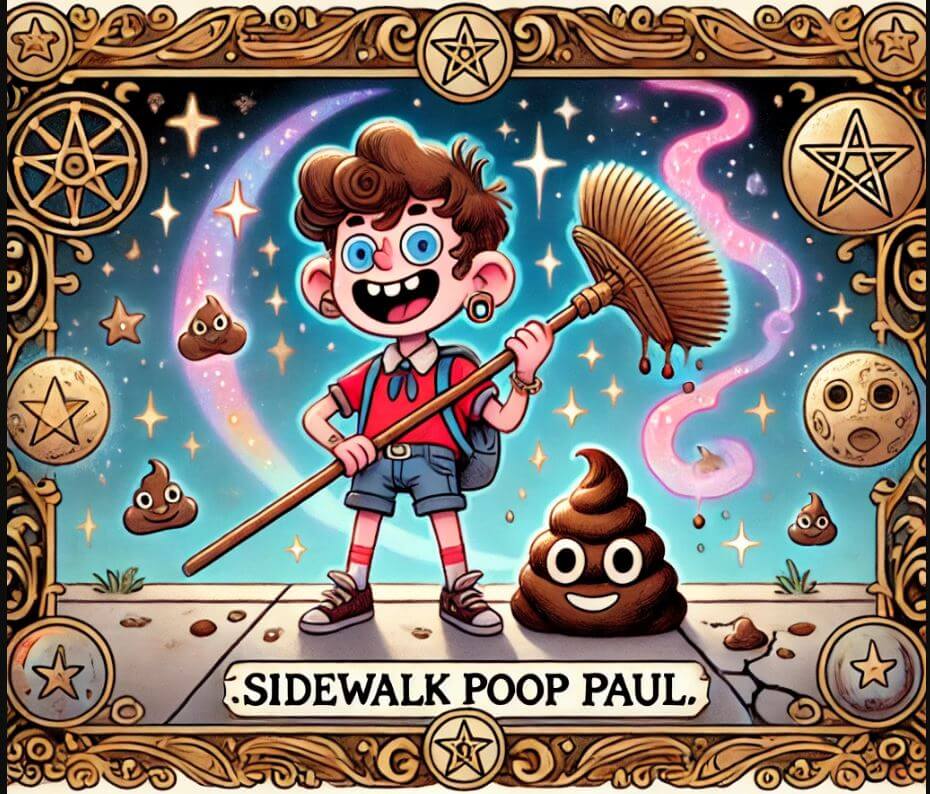Satire Trumps Mainstream News
PLANET EARTH – In a development that has left journalists scratching their heads and fact-checkers reaching for a stiff drink, a recent study has confirmed that readers now perceive satirical news sites like The Prattle Of The Damned as being “more accurate” and “closer to reality” than The Atlantic, despite their clear disclaimers that everything they publish is, in fact, made up.
The groundbreaking revelation came after a nationwide survey conducted by the Institute for Media Perception (IMP) revealed that 73% of respondents found satirical headlines to “better capture the truth of the situation” than their counterparts in mainstream media. “Satire seems to be getting closer to the truth, not because it’s reporting facts, but because it’s cutting to the heart of the absurdity of modern life,” said Dr. Rebecca Morton, lead researcher and part-time conspiracy theory de-bunker.
“In the last month, I’ve read POTD’s piece ‘Childless Couple Considers Adoption Solely For The Purpose of Getting Bullshit Days Off Work’ and thought, ‘That’s exactly what my aunt and uncle have been talking about!’” said Michelle Carter, a regular Atlantic reader who recently switched to satirical news after realizing it more accurately reflected her life. “Meanwhile, The Atlantic was still writing think pieces on ‘The Decline of Spoon Usage Among Millennials.’ It’s just hard to relate.”
Journalists at The Atlantic have responded with a mix of bafflement, outrage, and intense existential dread. Senior staff writer Henry Lanning expressed dismay, saying, “We just published a 14,000-word piece on the inner psyche of garden gnomes as a reflection of neoliberal self-actualization, and it’s disheartening to learn readers find more value in a headline that reads, ‘Biden to Retire to Produce Section of Local Supermarket, Where He Can Seamlessly Blend in with Other Vegetables.’ I spent two weeks in therapy trying to wrap my head around that.”
The shift seems rooted in satire’s remarkable ability to cut through the noise of over-analysis and euphemisms. For example, recent Atlantic article “Is Your Hairbrush Actually an Instrument of Internalized Capitalism?” was widely critiqued for being “so focused on nuance that it looped right back into nonsense,” according to reader reviews. By contrast, POTD’s recent headline “Jimmy Buffet Album Sales Expected to Plummet to 0 After Final Alcoholic Boomer Dies” was embraced as “so painfully true it hurt.”
Not surprisingly, news satire’s rise as an alternative to mainstream media’s high-minded prose is putting considerable pressure on traditional journalism outlets to adapt. The Atlantic recently announced plans to introduce a “satire-inspired” column where they attempt to “speak the truth, no matter how uncomfortably straightforward,” which will likely include groundbreaking titles like, “We Have No Idea What We’re Talking About, but Here’s Our Take on the Latest Political Crisis.”
Yet, skeptics worry that The Atlantic’s attempts to mimic satire may only highlight how desperately out of touch it has become. “They’re missing the point,” says Dr. Morton, “People are drawn to satire not because it’s simpler but because it’s brutally honest in a way that, ironically, takes more guts than traditional journalism.”
Meanwhile, POTD remains unfazed by its new status as the accidental torchbearer of reality. “If we had known that simply making up ridiculous stuff would lead people to consider us the most reliable source of truth, we would have upped our absurdity tenfold,” said POTD editor Ian Crandall. “Frankly, I’m shocked that people find us believable when one of our recent stories involved No Nut November.”
Despite all odds, the future seems bright for satirical news. Rumor has it that both The Atlantic and The New Yorker have begun shadowing the editorial team at Prattle Of The Damned, hoping to capture some of the “authenticity” that has evaded traditional outlets. They are reportedly planning a workshop titled “How to Accidentally Become More Real Than Reality Itself.”
In the meantime, Prattle Of The Damned continues to win over audiences with headlines like “To Improve Morale at Sweatshops, Apple Throws Employees a Pizza Party” and “Nvidia Changes Name to Cyberdyne Systems to Formalize the Process of Ending Humanity” both of which readers say feel “more real than anything in The Atlantic’s 50-page monthly spread on the existential crisis of home decor.”
As society grapples with a world where the most accurate truths are found in satire, the Institute for Media Perception is bracing for the inevitable moment when POTD will publish the most devastatingly accurate headline of all: “Man Finds Satirical News Site is Somehow Closest Thing He Has to Reliable Journalism.”
Satire Trumps Mainstream News Satire Trumps Mainstream News




